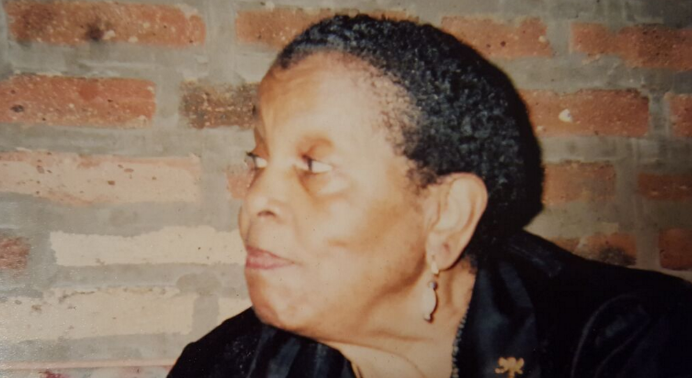|
Also featured in the Mar. 2016 edition of SIETAR USA News (Society for Intercultural Education, Training and Research). Nov. 1 marks the first of two, back-to-back Dias de los Muertos (Days of the Dead). It’s a lively holiday celebrated throughout Latin America—and especially Mexico, where it owes its historical roots—that honors the dead and the belief that death is a part of the continuum of life. This year, on the anniversary of my grandma’s transition, I’m delighted to share with you a few lessons about connecting across differences that we learned together. I called her Gammy. She made “slap-yo-mama” good bread rolls from scratch; had the softest, smooth skin that smelled like Oil of Olay; and talked nonstop without coming up for air. Being “politically correct” (P.C.) was not her thing, and I’m not even sure she would heed the concept if she was aware of it. Gammy had more important things to do—like connecting mind to mind, heart to heart through real conversation. When we attempt to be P.C., we disempower ourselves and others by underestimating our intellectual and emotional abilities to respect others and manage dissimilar ideas at the same time. Her non-P.C. modus operandi offered many a chance to ask, listen and learn about what she meant by what she said. Before I departed for travel to India, she asked if I spoke Indian; Gammy gifted me a pendent in the shape of a Christian cross the first Christmas after I declared as Baha’i; she identified as Colored until the day she died. We did not agree on all of her opinions, though Gammy allowed this difference of perspective to be a point of connectedness between us.
We do no one favors when we’re politically correct. When we attempt to be P.C., we retreat from the authenticity of our words by speaking in ways that do not fit our meaning; shrink our minds to conform to the latest trend; disempower ourselves and others by underestimating our intellectual and emotional abilities to respect others and manage dissimilar ideas at the same time. If language reflects mindset, what does your language say about you? Strong people and stronger relationships are made from the way we engage with one another when differences occupy the space between us. Speak freely like Gammy, who was never too old to open her mind to understand something new—whether or not she accepted it as her truth. She was, however, more charming than most and could say almost anything with her radiant smile. However freely we choose to speak relative to our environment, there is promise in using our own words; owning the impact of those words; and recognizing that how we respond to differences of experience speaks volumes about the power of our minds. Virtually yours, Malii Brown Subscribe to receive blog posts delivered fresh monthly into your inbox at [email protected].
2 Comments
7/31/2018 09:38:45 am
It was nice to read those words from your grandmother! Most of the time, we learn from the life lessons we get from our parents or grandparents because of their personal experience in life. I believe that experience is the best teacher, that is why we should allow ourselves to try new things which will become beneficial to us, may it be soon or later! As much as I want to say, her words inspired the heck out of me too!
Reply
4/9/2019 02:29:58 pm
@BestResumeWritingServices: Re-reading your post just now in the month of my late Gammy's birthday. Grateful for the woman whose words inspired the heck out of us both!
Reply
Your comment will be posted after it is approved.
Leave a Reply. |
EngageBetween...people. place. purpose. |

 RSS Feed
RSS Feed